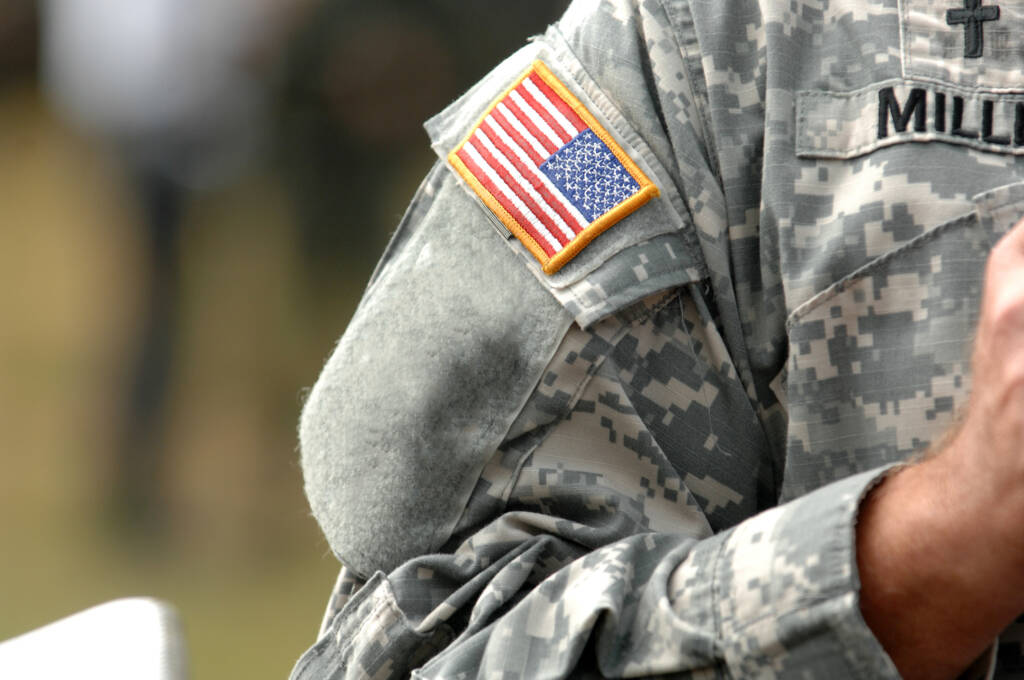
Military Careers

Introduction to Military Careers
You’ve probably seen an old movie about a hotshot naval aviator, or perhaps a more recent film about the daring actions of Special Forces operatives. But do you really know what careers the military can offer you? Introduction to Military Careers will provide the answers. The military is far more diverse and offers many more career opportunities and tracks than most people imagine. While taking Introduction to Military Careers, you’ll learn not only about the four branches of the military (and the Coast Guard) but also about the types of jobs you might pursue in each branch. From aviation to medicine, law enforcement to dentistry, the military can be an outstanding place to pursue your dreams.
During this course, you will learn career-related skills and earn a badge for this accomplishment. A badge is a digital certification of your career-related learning that you can share on social media or with higher education platforms, colleges, potential employers, peers, and colleagues. Select this link to learn more about badges.
Major Topics and Concepts
Unit 1: Welcome to the Military
- Identify the unique mission of each branch of the U.S. military
- Understand the basic history of each branch, including some of its major successes
- Explain how the military fits within the U.S. government
- Discuss the requirements for active duty and part-time duty military service and understand the differences
Unit 2: Military Aviation Careers
- Understand the two different career paths that military personnel can take in aviation
- Identify and describe the responsibilities of each type of aviator
- Describe the four types of aviation support career paths
- Understand the relationship between aviators and aviation support careers
Unit 3: Logistics, Supply, & Transportation Careers in the Military
- Identify the differences between logistics, supply, and transportation careers
- Understand the role of logistics to the success of military campaigns
- Discuss how logistics, supply, and transportation work together to aid soldiers and missions
- Recognize how logistics and supply careers affect every part of a soldier’s life
Unit 4: Law & Order in a Uniform
- Describe the career tracks available in military law
- Understand how the military legal environment differs from the civilian one
- Identify some of the types of law that military lawyers practice on a regular basis
- Recognize how all of the career tracks fit together
Unit 5: Boots on the Ground/Combat Operations Careers
- Identify the different types of combat operations careers available in the military
- Understand the differences between the types of jobs
- Explain why the Marines have a different combat readiness program
- Discuss the training differences between special operations combat soldiers and more traditional combat careers
Unit 6: Military Brains: Technology, Engineering, Intelligence
- Identify the skills necessary to be a part of the information technology division of the military
- Discuss how signal specialists maintain communication throughout the military and why their roles are essential
- Understand what people with military intelligence careers do
- Describe the role of civil engineers in the military
Unit 7: Military Behind the Scenes
- Understand the role of business administration and human resources careers in the military
- Explain how public affairs careers help shape the way that the public understands the military
- Describe how military music careers work and the opportunities that come with them
- Identify how a chaplain helps soldiers and military families
- Discuss how culinary services support the lives of military personnel
Unit 8: Private Practice or General Practice?: Military Medical Services
- Identify the three types of medical careers the military offers
- Describe the responsibilities of military-specific medical fields
- Understand how the different medical careers work together to serve soldiers
- Discuss the diversity of skills and interests that military medical careers attract
Competencies
Military Branches
Students will demonstrate an understanding of military branches by describing the mission of the military branches, and explaining the requirements for military service.
Military Aviation Careers
Students will demonstrate an understanding of military aviation careers by describing aviation careers and comparing aviation careers with aviation support careers.
Logistics, Supply, and Transportation Military Careers
Students will demonstrate an understanding of logistics, supply, and transportation military careers by describing the military careers in logistics, supply and transportation, and explaining the role of logistics, supply and transportation in military missions.
Military Legal System
Students will demonstrate an understanding of the military legal system by describing careers in military law and explaining the difference between military law and civilian law.
Military Combat Operations Careers
Students will demonstrate an understanding of military combat operations careers by describing combat operations careers and comparing combat readiness programs.
Military Information Technology Careers
Students will demonstrate an understanding of military information technology careers by explaining communication throughout the military and describing military information technology careers.
Military Support Careers
Students will demonstrate an understanding of military support careers by explaining military careers associated with business management of the military and explaining military careers associated with the well-being of military employees.
Medical Military Careers
Students will demonstrate an understanding of medical military careers by describing medical careers in the military and explaining the service responsibilities of medical careers.

